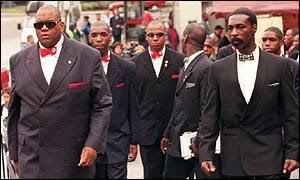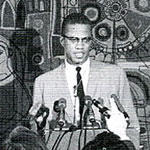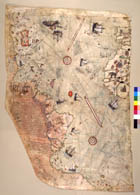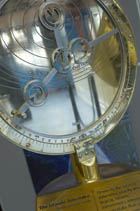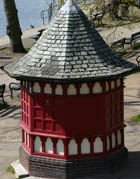
Reincarnation (tanasukh) refers to the doctrine that after death the soul moves on to inhabit another body, then dies again and moves on to another body, until there is no longer any reason for it to do so. It is incompatible with Islam.
Belief in some form of reincarnation can be found in almost all societies, whether primitive or sophisticated. Variations exist according to local and regional differences in faith and popular culture.
One argument for this doctrine's antiquity is the "evidence" found in ancient literature, such as Ovid's (d. 18 CE) colorful extravagances in which "gods" take on human and animal forms, humans assume different shapes, and so on. But these tales do not constitute a doctrine. The doctrine proper has nothing to do with colorful changes of form, but with a belief that an individual soul must pass through every level of creation and every species of life-form, whether animate or inanimate, sentient or non-sentient.
If we reflect upon this, we soon realize that the doctrine is really a strange elaboration on the soul's immortality. In other words, its kernel is that the soul is immortal. That kernel is true; the rest is not. The doctrine also may have arisen from observing similarities in physical and other traits between parents and offspring. Is it reasonable to obscure the logical biological phenomena of heredity and genetics with the illogical doctrine of reincarnation?
Apologists put forward some "evidence." For instance, the Kabbalists mention the transformation of Niobe (mentioned in the Old Testament) into a marble sculpture, and of Prophet Lot's wife into a statue of dust. Others have referred to a literal transformation of Jews into monkeys and pigs.
Another argument explains instinct and intelligence in animals, as well as the splendors of the plant kingdom, as the product of once-human intelligence and vitality. This idea debases humanity and shames its proponents. We all know that there is a program and predetermined destiny for plants and inanimate creation, but it is rather far-fetched to trace the harmony and order we see in those kingdoms to formerly human souls. For example, and in reality, plants have a certain plant-life: a direction of growth toward light and moisture. How can this be construed to mean that its life is the result of a formerly human soul that somehow has worked its way down to a lower level of creation?
Despite efforts to corroborate this assertion, no one has ever received a message from a plant confirming that it contains a once-human soul. Nor have we heard any account from someone that he or she was once the soul of a plant or an animal. The media have publicized some accounts of people recollecting so-called past lives and even recounting specific incidents. However, in cases when such claims are not totally absurd, they can be explained as recollections of what has been seen or read and then, knowingly or otherwise, elaborated and transformed. In short, such accounts are no more than ordinary human fictions.
The fact that Niobe and Lot's wife were transformed into sculptures of marble or dust respectively, even if accepted literally, does not prove reincarnation. What we have here is only a physical transformation, not a soul's transmigration.
As for petrified bodies, that is not an arcane phenomenon. Many such corpses have been found, preserved by the absolute dryness of volcanic ashes. Pompeii was destroyed in 79 CE by Vesuvius' sudden volcanic eruption and remained buried for centuries. Recent excavations have revealed numerous Niobe-like petrified bodies. In these ruins, and in the petrified faces and bodies, so busy in their self-indulgent vices and so secure in their arrogance, we can, if we wish, read the signs of Divine wrath and punishment. Perhaps their way of life was solidified in ash and so preserved to warn future generations. To interpret this as evidence of reincarnation is untenable.
Belief in reincarnation in Egypt, India, and Greece developed out of a distorted version of a once-sound belief in the Hereafter and from a longing for the soul's immortality. Neither in Akhenaton's Egypt nor in Pythagoras' Greece did anyone know of such a distorted idea.
To Akhenaton (d. 1362 BC), when one's life ends in this world, a different one starts in heaven. As soon as one dies, the soul sets off on its journey to reach the "Greatest Court" in Heaven. It goes so high that it reaches the presence of Osiris, and hopes to give an account of itself in words like these: "I have come to Your presence as I was free of sins. Throughout my life, I did everything I could that would make devout people pleased. I did not shed blood or steal. Neither did I make mischief or mean any. I did not commit adultery or fornication." Those who can speak so join Osiris' congregation, while those who cannot, whose evil deeds outweigh their good, are hurled into hell and tortured by demons.
Such sound belief also is witnessed in epitaphs relating to Akhenaton's religion:
What You have done is too much, and our eyes cannot perceive most of them. O One, Only God! No one possesses such might as You have. It is You who have created this universe as You wish, and You alone. It is You who decree the world suitable for human beings, for all animals, whether big or small, whether they walk on the ground or fly in the sky. And it is You alone who sustain and nourish them. Thanks to You, all beauties come into existence. All eyes see You by means of those. Verily, my heart belongs to You (You are in my heart).
The ideas quoted verbatim above were the things that were believed in as truth in Egypt some 4,000 years ago.
In ancient Greece, the belief in resurrection and the soul's immortality were quite sound. The great philosopher Pythagoras (d. c.500 BC) believed that the soul, on leaving the body, has a life peculiar to itself. In fact, any soul has this same kind of life even before it quits the Earth. It is commissioned with some responsibilities on Earth. If it commits any evil, it will be punished, thrown into Hell, and tormented by demons. In return for the good it does, it will be given high rank and blessed with a happy life. Allowing for changes that might have been made in his views over time, we still can see that there are fundamental similarities with Islam's creed of resurrection.
In essence, reincarnation is a distorted version of a sound belief. Every creed, with the exception of Islam, has suffered such distortions. For example, the Divinely revealed religion of Christianity and the exact identity and role of Prophet Jesus has been distorted. Had it not been for the luminous and clarifying verses of the Qur'an and the influence of Islam, Christianity's formal position on this matter may not have been different.
If Christianity teaches the unity of the soul and body, it owes this to the Muslim savants of Andalusia (Muslim Spain). St. Thomas Aquinas (d. 1274) is one of Christianity's most famous philosophers. The greater part of his new ideas and synthesis were adapted from Islamic teachings. He says in his distinguished book that the key concept of humanity is that the soul and body are united in an apt composite. He adds that animal souls develop with animal bodies, but that human souls are created at some time during early development, and therefore rejects the abstract speculations of the Neo-Platonist school.
Through a process of similar mistranslations of the original languages, as well as various distortions, the ancient Egyptian, Indian, and Greek religions became unrecognizable. The doctrine of reincarnation may well be a distortion of an originally sound doctrine of the soul's immortality and return to the Divine Judgment. After reincarnation was inserted into the beliefs of the ancient Egyptians, it became a central theme of songs and legends throughout the Nile region. Elaborated further with the eloquent expressions of Greek philosophers, it became a widespread phenomenon due to the expansion of Greek influence.
Hindus consider matter as the lowest manifestation of Brahma, and consider the convergence of body and soul as demeaning to the soul, a decline into evil. However, death is believed to be salvation, a separation from human defect, a possible chance to achieve an ecstatic union with the truth. Hindus are polytheistic in practice. Their greatest god is Krishna, who is believed to have assumed a human figure in order to eradicate evil.
According to their most important holy book, the Vedanta, the soul is a fragment of Brahma that cannot get rid of suffering and distress until it returns to its origin. The soul achieves gnosis by isolating itself from the ego and all wickedness pertaining to the ego, and by running toward Brahma just as a river flows toward the sea. When the soul reaches and unites with Brahma, it acquires absolute peace, tranquillity, and stillness, another version of which is found in Buddhism. There is a cessation of active seeking and a passivity of soul in the latter, whereas the soul is dynamic in Hinduism.
Some Jewish sects adopted reincarnation. After refusing belief in Resurrection and Judgment, the Jews, who can be inordinately covetous of life yet remain fascinated by the soul's immortality, could do little else but accept reincarnation. Later on, the Kabbalists transferred it to the Church of Alexandria through certain regional monastic orders. The doctrine had a negligible effect on the manifestation of Islam. Nevertheless, and most unfortunately, it was introduced to Muslims by the Ghulat-i Shi'a (an extremist Shi'a faction).
All those who believe in reincarnation have one characteristic in common: the belief in incarnation. There is a shared failure of intellect to grasp and accept God's Absolute Transcendence. As a result, people believe that the Divine mixes with the human and that the human can (and does) mix with the Divine. This mistaken idea is all but universal, with the exception of Islam. The central figure in each distorted religion is an incarnation or reincarnation-Aten in Atenism, Brahma in Hinduism, Ezra (Uzair) in Judaism, Jesus in Christianity, and 'Ali in the Ghulat-i Shi'a faction (considered by many as outside the fold of Islam). Allegations that some Sufi writings and sayings support reincarnation are either plainly malicious or the result of an absurdly literal understanding of their highly symbolic and esoteric discourse.
Throughout history Muslim scholars in every religious field, certainly among the 90 percent of Sunnis, have rejected reincarnation as totally contrary to the spirit of Islam. The reason for this stand is simple: The absolute centrality of the Islamic beliefs that each person lives and dies according to his or her own destiny, carries his or her own load, will be resurrected individually and called to answer for his or her intentions and actions and their consequences, and that each person will be judged by God according to the same criteria.
We list below the cardinal reasons why Islam rejects reincarnation.
• Belief in Islam requires belief in the Resurrection and Judgment, where justice is meted out to each individual soul according to what it did while alive. If the individual soul passes into different lives, in which form or personality will it be resurrected, commanded to give account, and be rewarded or punished?
• This world is created for test and trial so that the soul can derive benefit thereby. One focus of the test is belief in the Unseen. According to reincarnation, those who live a bad life pass into a lower form of life after death. If that is true, they will know the consequences of their former life, and life as a test loses its meaning. To get around this, its adherents say that the soul "forgets" its past existence. If that is true, what is the point of a former life?
• If each individual passes through the cycle of birth, death, and rebirth until eternal bliss (enlightenment) is achieved, God's promises of reward and punishment are meaningless. Why would God engage in such a meaningless activity?
• The Qur'an and other Divine Books state that sins will be forgiven as a result of sincere repentance. The point of reincarnation is to "work off" one's sins in order to obtain a better rebirth. Is it not more logical to believe in the ability of God to forgive, when and as He wills, rather than to go through this seemingly unending and cumbersome process to achieve, in essence, the same result?
• Long and tiresome cycles of rebirth are contrary to God's mercy, favor, grace, and forgiveness. If He wills, He takes ordinary, worthless, inferior things and turns them into what is purest, best, and beyond price. Infinite indeed are His blessings and munificence.
• Many followers of the Prophets led wicked lives before embracing Islam. Once they converted, however, they reformed themselves within an incredibly short time and became revered models of virtue for later generations. Some of them surpassed previous followers and came to be even more revered. This indicates that, by the favor of God, people can rise easily and quickly to the summit even if they apparently were bound for Hell. It also shows how unnecessary is the doctrine of souls "graduating" to higher levels of being. Indeed, such a doctrine might actually weaken any incentive to moral effort.
• To believe that God, the All-Mighty, has created an individual soul for each person is part of belief in His Omnipotence. To believe that only a limited number of souls migrate from body to body argues the illogical proposition that the Omnipotent is not Omnipotent. The sheer abundance of life, its infinite variety, its refusal merely to repeat form is everywhere evident. Out of billions of people, we now know how to prove that each one is absolutely unique-no two fingerprints or genetic codes are exactly alike. This fact of individual uniqueness is found in many Qur'anic verses. Given this, why should we assume that the Omnipotent cannot create an infinite number of individual souls and supply them with an infinite number of bodies?
• Why has no one ever come forward and been able to prove, by means of some marks, signs, or evidence that could confirm their "past-life" memories, adventures, and experiences in different forms and bodies? Where is the accumulated knowledge, experience, and culture of those who have lived more than once or have completed their cycle? If this happened in only one out of a million cases, should we not expect a great number of people now living to have extraordinary virtue and competence? Should we not have met a few of them by now? Where are they?
• When somebody reaches a certain measure of physical maturity or age, should we not expect the soul to emerge with all that it has acquired and achieved during its past lives? Should we not expect prodigies? There have been quite a few prodigies in recorded history. All of their special gifts can be explained as a special combination of genetic characteristics occurring in a particular time and place, which is attributable to Divine Grace and Favor, together with the prodigy's efforts to understand this gift in the tradition and context in which it is given.
• No specifically human faculty has ever been found in a non-human entity. But if reincarnation is true, we should expect such discoveries. If a lower form of life is the punishment for particular evil deeds in the previous life, then, presumably, the good in that life also must be carried forward. In other words, some part of the individual's previous life should be retained in the next life. In this case, we would expect the boundaries of particular forms to burst open frequently-with, for example, plants suddenly showing properties associated with animals. Why have we never seen such events?
• If being a human or an animal is the consequence of one's deeds in a former life, which first existed: the human or the animal, the higher or the lower? Believers in reincarnation cannot agree on any form for the first creature, as every generation implies a preceding generation, for how else can the succeeding generation be considered the consequence of the former? If, as some assert, physical life is an evil, why did the whole thing even start? Why did life begin at all? Reasonable answers have not been forthcoming.
Fethullan Gulen




